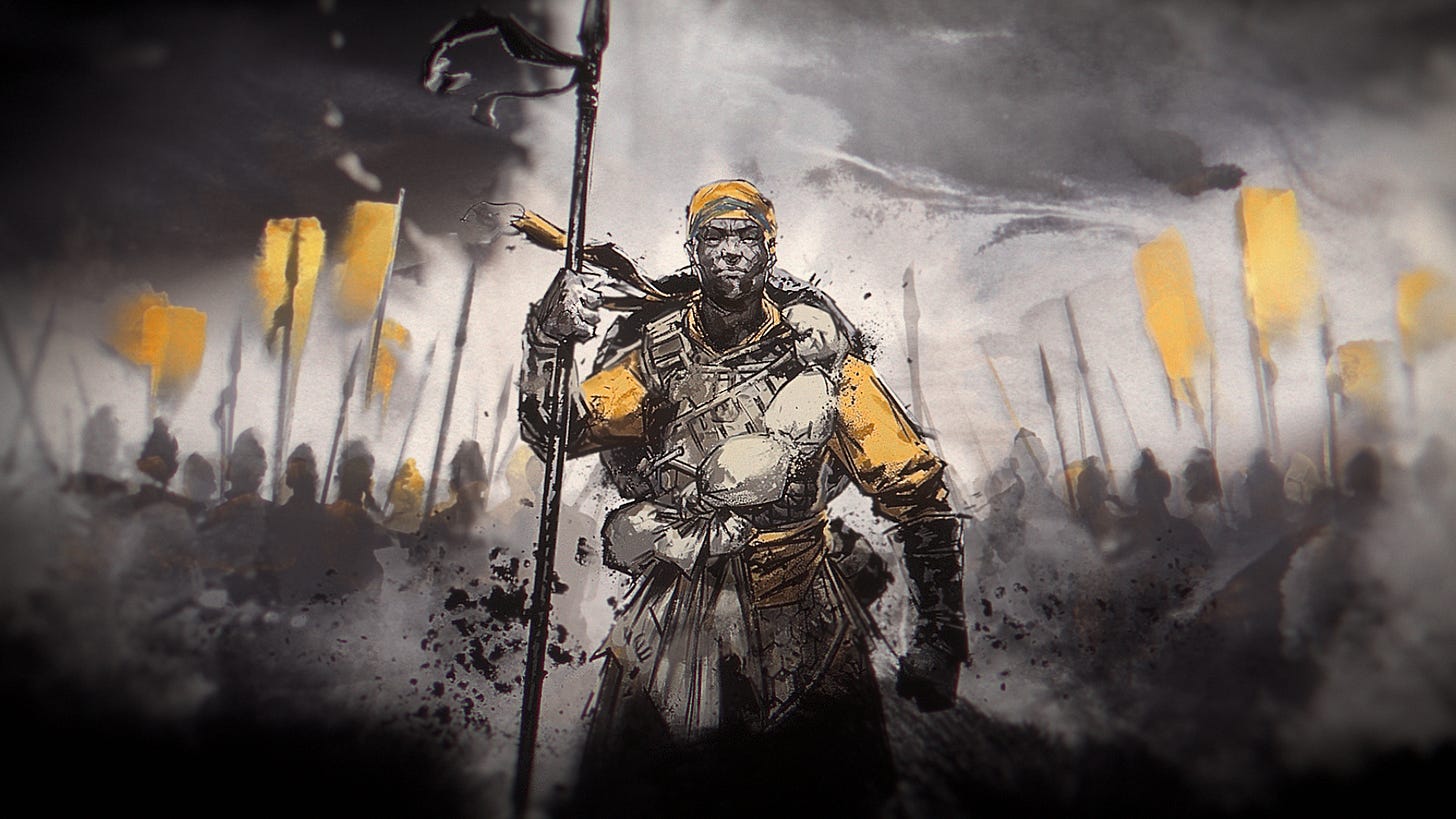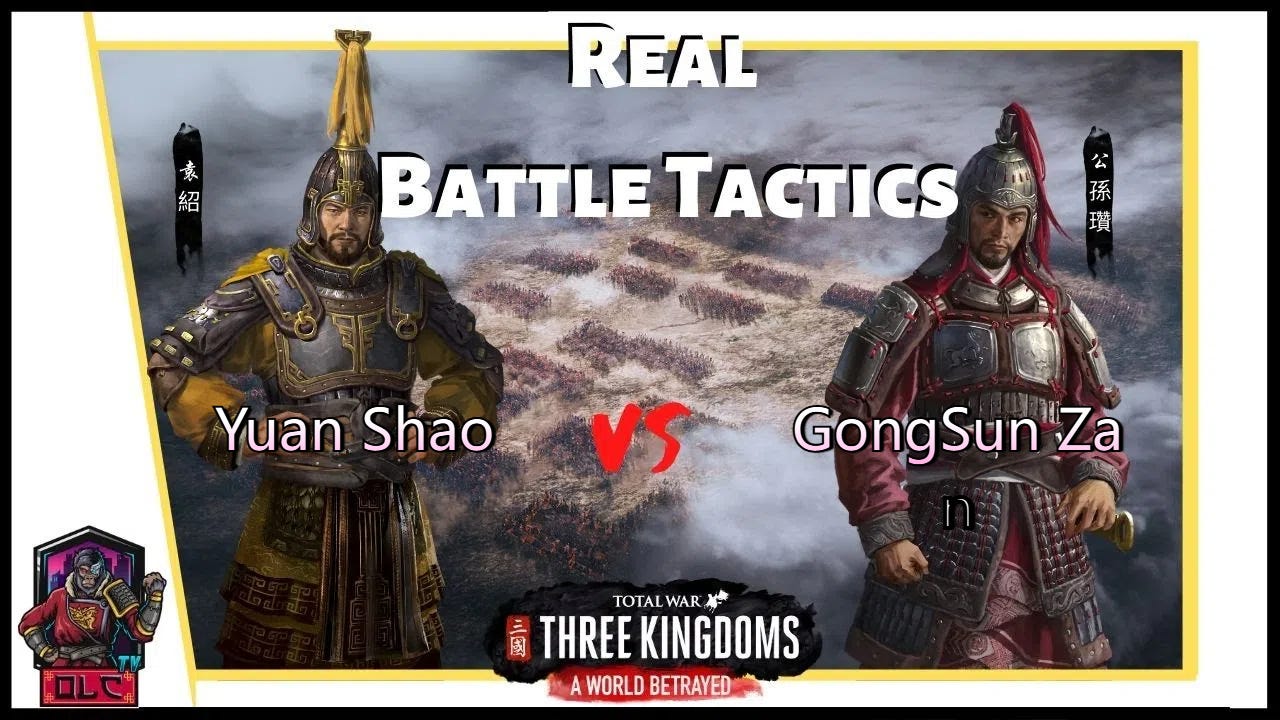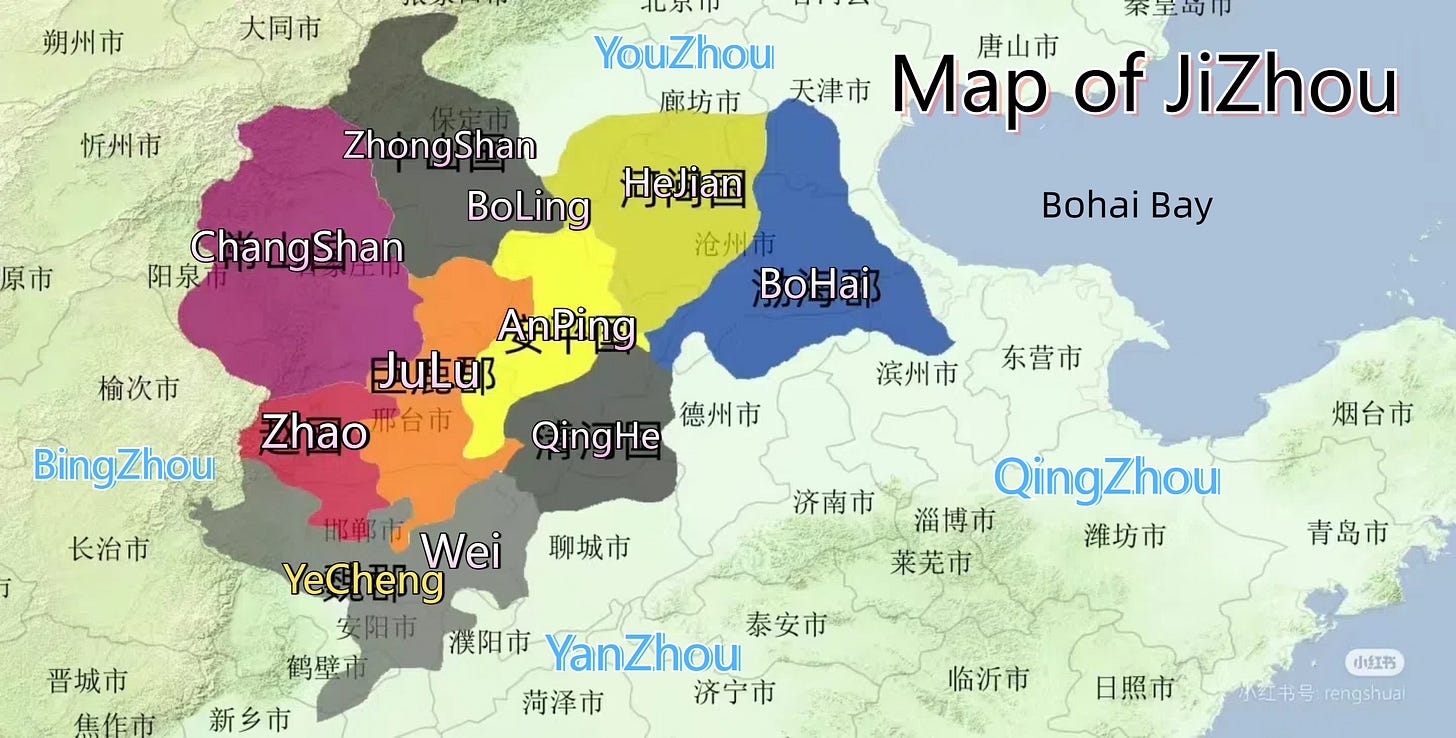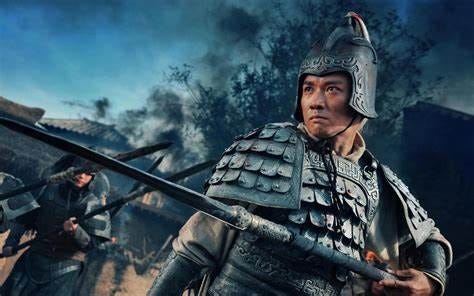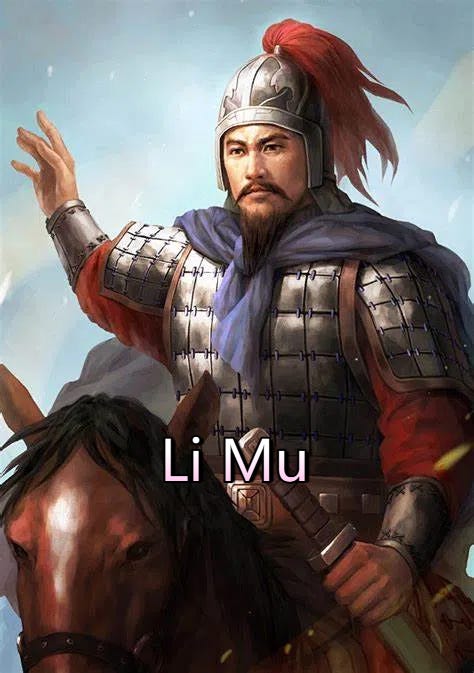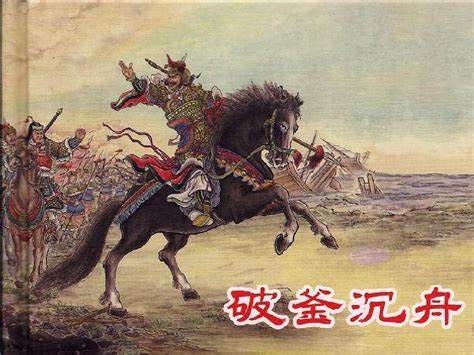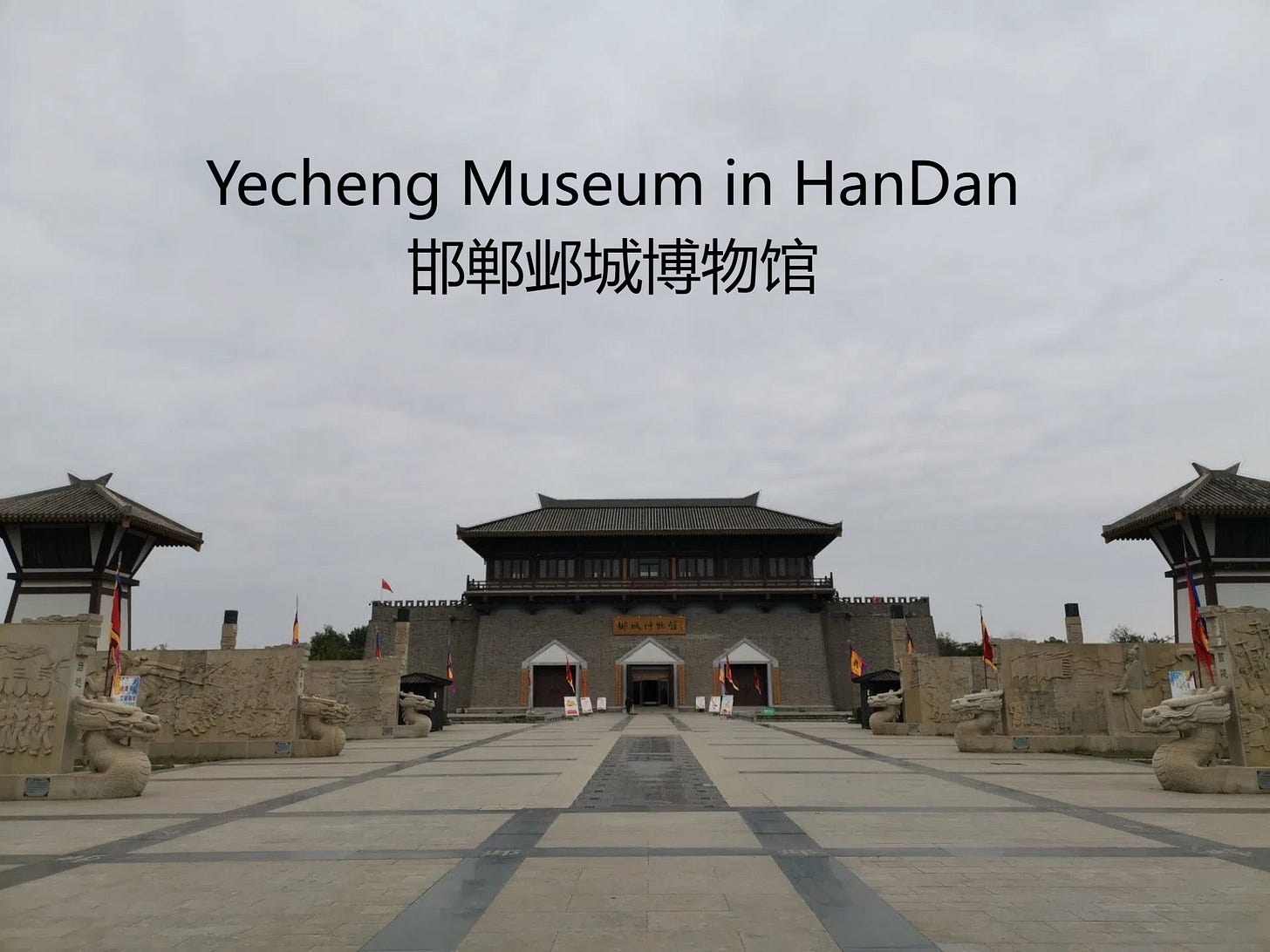Province of JiZhou(Introduction to Three Kingdoms Geographical Names 7)
Important Places of Three Kingdoms
More Place Names of Three Kingdoms
More Three Kingdoms Historical Stories
During the Eastern Han Dynasty, Jizhou冀州 included present-day central and southern Hebei河北, western Shandong山东, and northern He’nan河南.
The initial seat of Jizhou was in Xindu新都 County of Anping安平 Commandery. In 184 AD, during the reign of Emperor Ling of Han(汉灵帝reigned 167-189AD) , the seat of Jizhou was changed to Ye邺 County (YeCheng邺城) in Wei Commandery魏郡. After the founding of Cao Wei(曹魏220-265AD), in 221 AD, the seat of Jizhou was changed back to Xindu because Yecheng served as one of the five capitals of Wei Empire.
At the late Eastern Han period, Jizhou was extremely affluent, and after 20 years of war, Cao Cao occupied Yecheng, saw Jizhou's civil registry data, and was shocked and excited by the terrible strength of Jizhou, which could still mobilize 300,000 soldiers.
In 184 A.D., the vast Yellow Turbans peasant revolt broke out, and under the leadership of Zhang Jiao张角, the Yellow Turbans once captured Jizhou. Huangfu Song皇甫嵩 was appointed by Emperor Ling of Han to lead the army to eliminate the Yellow Turbans in the crisis. After Huangfu Song's victory, he was appointed as the provincial governor of Jizhou. Subsequently, Huangfu Song was transferred back to the central court, and Wang Fen王芬 became the provincial governor of Jizhou. In 187 AD, Wang Fen and Xu You许攸 (the guy who later betrayed Yuan Shao to Cao Cao at the Battle of Guandu官渡) planned to assassinate Emperor Ling of Han, but the plan failed and Wang Fen committed suicide. Wang Fen was replaced by a man named Jia Cong贾琮. Two years later, Dong Zhuo entered the capital of Luoyang洛阳 and took control of the imperial court. In order to curry favor with the powerful scholar families, Dong Zhuo appointed a number of local officials, and it was at this time that Han Fu韩馥 was appointed by Dong Zhuo as the provincial governor of Jizhou. After that, it was the familiar Yuan Shao who engineered Han Fu's expulsion and became the governor of Jizhou himself. After the Battle of Guandu, Yuan Shao fell ill and died, and his third son Yuan Shang袁尚 took over his position as the governor of Jizhou. Cao Cao, on the other hand, became the governor of Jizhou himself after taking over Jizhou and driving out Yuan Shang.
Of course in a chaotic world, who is the Governor generally still depends on who has the harder fist. The official position of Jizhou governor was also reduced, like the previously mentioned Yuzhou豫州 governor, to a tool for warlords to reward their subordinates or to demonstrate the legitimacy of their own regimes.
Although Jizhou had been Yuan Shao's territory for a long time, Gongsun Zan公孙瓒 also appointed Yan Gang严纲 as the provincial governor of Jizhou, with the intention that Yan Gang would lead the army to defeat Yuan Shao and take over Jizhou. Before the Battle of Guandu, Cao Cao had also successively appointed Dong Zhao董昭 and Jia Xu贾诩 as the provincial governors of Jizhou. Although Jizhou was not Cao Cao's territory at all, he did so in order to emphasize the legitimacy of the court he represented. But as soon as he captured the rich Jizhou, he himself immediately became the governor of Jizhou, and of course, I guess Jia Xu would have no problem with that.
After Cao Cao's death, Cao Pi曹丕 not only inherited the title of Prince of Wei, but also the posts of Prime Minister and Governor of Jizhou, so the last Governor of Jizhou in the Eastern Han Empire was Cao Pi. During the reign of Wei, as Jizhou was in the northern hinterland of the Central Plains, neither on the front line of the war with Shu Han(蜀汉221-263AD) and Eastern Wu(东吴229-280AD), nor on the northern border provinces, the historical records of the relevant personnel information are not detailed, and there are only three people who have been recorded to have held the post of provincial governor of Jizhou: Lyu Zhao吕昭, Sun Li孙礼, and Pei Wei裴徽.
At the late Eastern Han, there were 10 commanderies in Jizhou, namely: Anping安平, Zhongshan中山, Boling博陵 , Changshan常山,HeJian河间, Qinghe清河, Zhao赵, Julu巨鹿, Bohai渤海, and Wei魏.
Anping Commandery was established in 122 A.D. The original seat of Jizhou, Xindu County, was located in Anping Commandery . In 184 AD, the Yellow Turban Uprising broke out, and many people in Anping Commandery responded to the uprising. In the same year, the seat of Jizhou was moved to Yecheng.
Liu Bei's close friend - Qian Zhao (牵招), who swore to live and die with Liu Bei when they was young, was from Anping Commandery. In addition, Cao Pi's second empress, Empress Guo郭, was also from Anping Commandery, and interestingly enough, her name was written as“Nyu Wang女王”,means the queen.
Zhongshan Commandery, during the Eastern Han Dynasty, was in the northwest of Jizhou, at the eastern foot of the Taihang Mountains太行山, in the present-day city of Dingzhou定州, Hebei河北 Province. It was originally the state of Zhongshan during the Warring States period, and its name was used for a long time until it was abolished during the Sui Dynasty(581-618AD). When it comes to Zhongshan, Liu Bei's famous ancestor, Liu Sheng刘胜, the Prince Jing of Zhongshan中山靖王, is the most famous. Liu Sheng was the ninth son of Emperor Jing of Han(汉景帝Reigned 157-141BC),and his fief was located in Zhongshan Commandery, which is why Zhongshan Commandery was also called Zhongshan State中山国 for a long time in Han Dynasty. Liu Sheng's posthumous name was “Jing靖”. He was not very good at anything, but he liked wine and sex, and he actually gave birth to more than 120 sons. These 120 sons flourished in this area for more than 300 years, so Liu Bei's claim that he was a descendant of the Han Emperor should not be false, but there are at least a few tens of thousands of people with the same identity as him, so there is really no value.
Another interesting thing is that Cao Pi's first empress, Empress Zhen甄, was from Wuji无极 County in Zhongshan Commandery, which is just northwest of Anping Commandery.
Boling Commandery was a new county established in 155 AD by dividing it from the southeastern part of Zhongshan Commandery. In 185 AD, Zhang Nujiao张牛角, a native of Boling, took advantage of the Yellow Turban Uprising to gather a group of people here and attacked the county town together with Chu Yan褚燕, another leader of the Uprising Army. Later, Zhang Niu Jiao was killed by an arrow, and before he died, he asked his men to elect Chu Yan as the leader, and Chu Yan changed his name to Zhang Yan张燕, and this army later became the famous Black Mountain Army黑山军.
The Boling Cui Clan博陵崔氏, which later became one of the most prestigious Clans in the Sui and Tang dynasties (five surnames and seven prestigious Clans五姓七望), gave birth to a total of 16 prime ministers in the Tang Dynasty(618-907AD), and as early as the Eastern Han Dynasty, the Boling Cui family produced a number of literati, calligraphers, and high-ranking officials. “Boling Cui Zhouping博陵崔州平”, a close friend of Zhuge Liang mentioned in “Zhuge Liang's Biography”, was Cui Jun崔钧, the second son of Cui Lie崔烈, an Excellency Commandant太尉 in the late Eastern Han.
Changshan Commandery is located in the area of present-day Shijiazhuang石家庄, the capital of Hebei Province. When it comes to Changshan, the most famous figure is undoubtedly "Changshan Zhao Zilong常山赵子龙". Zhao Yun赵云 was elected by the locals of Changshan and led the local volunteers to join Gongsun Zan. Later, he met his lifelong lord and close friend, Liu Bei.
HeJian河间 Commandery is located in the present-day city of Cangzhou沧州 in Hebei Province, and was often called the Hejian State as it served as a fiefdom for princes during the two Han dynasties and even during the Wei and Jin dynasties.
Qinghe清河 Commandery is in present-day Qinghe Commandery, Xingtai邢台 City, Hebei Province. In 148 A.D., Qinghe Commandery was renamed Ganling甘陵 Commandery, and during the reign of Cao Wei, the name was changed back to Qinghe. The most famous surname in Qinghe is also Cui崔, and together with the Boling Cui clan, they became one of the most prestigious clans in the country during the Sui and Tang dynasties, the “Five Surnames and Seven Prestigious Clans”.
During the Three Kingdoms period, the most famous person of the Cui Clan in Qinghe was Cui Yan崔琰, the originator of the Qinghe Cui Clan, who was one of the most respected and famous scholars in the late Han and Three Kingdoms periods. By the time of the Northern and Southern Dynasties(420-589AD), after hundreds of years of development and growth, the reputation of Qinghe Cui Clan has reached its peak, there are many members of the clan served as high-ranking officials in both the Northern and Southern Dynasties. In the Tang Dynasty, the Qinghe Cui Clan was still prominent, giving birth to twelve prime ministers, no less than the Boling Cui Clan.
Zhao赵 commandery, as the name suggests it derives its name from the State of Zhao during the Warring States period.
After Zhao State was conquered by Qin, Qin established Handan邯郸 Commadnery around Handan, the original capital city of Zhao State. After the fall of Qin, Liu Bang(刘邦founder of Han202-195BC) made Zhang Er张耳, who came to join him in defeat, the Prince of Zhao, and renamed Handan Commadnery as Zhao Commadnery as Zhang Er's fiefdom, which is why Zhao Commandery is also known as Zhao State. Thereafter, during the Two Hans(202BC-220AD), Three Kingdoms(220-280AD), and Western Jin Dynasty(266-317AD), Zhao was set up as a fiefdom for princes many times, so the name Zhao State also existed for a long time. During the period of the Sixteen Kingdoms, Liu Cong刘聪 of the Xiongnu匈奴 and Shi Le石勒 of the Jie founded the Former Zhao(304-329AD) and the Later Zhao(319-351AD) successively, which made the “State of Zhao” exist in another form.
Jizhou, as the richest province in the country at that time, was the birthplace of many prestigious clans. In addition to the two Cuis崔 Clan of Boling and Qinghe, the Li李 Clan of Zhao Commandery, one of the “Five Surnames and Seven prestigious Clans” of Sui and Tang dynasties, also came from Jizhou.
The earliest celebrity of the Li Clan of Zhao Commandery was Li Mu李牧, a famous general of the State of Zhao during the Warring States period. In the Western Jin Dynasty, the Li Clan of Zhao Commandery began to develop and grow, and many of its clansmen served as high-ranking officials or became famous scholars in the Northern Dynasties, and in the Tang Dynasty, nine of them served as prime ministers, which made them prominent for a while.
Julu巨鹿 was first a city during the Warring States period, and was established as a commandery during the Qin Dynasty, with its seat at Julu City, in what is now Pingxiang平乡 County, Xingtai邢台 City, Hebei Province.
When talking about Julu, we have to mention the famous Battle of Julu at the late Qin. Julu City was an ancient military stronghold. In 208 BC, Xiang Yu项羽 and Qin‘’s general Zhang Han章邯 faced each other at Julu. After Xiang Yu crossed the Zhang River漳水, he ordered his generals and soldiers to sink their boats and smash their pots. With only three days' food, he indicated that he would fight Zhang Han to the death. As a result, Xiang Yu was victorious and wiped out the main force of the Qin army, and the Great Qin Empire has been on its way to extinction ever since.
Bohai渤海 commandery is in the eastern part of present-day Cangzhou沧州, Hebei Province, and was named for the Bohai Bay that lies to the east of it. The seat of Bohai commandery was in Nanpi南皮 County, which still exists today and is affiliated to Cangzhou City, Hebei Province.
In 189 AD, in order to bring Yuan Shao and other scholarly forces into the fold, Dong Zhuo appointed Yuan Shao as the commanderial governor of Bohai, and from then on, Bohai commandery became Yuan Shao's first base. Therefore, in many of the Three Kingdoms games we have played, in the script of the “Crusade against Dong Zhuo”, Yuan Shao's opening is in Nanpi City, the capital of Bohai commandery .
Wei Commandery魏郡 had jurisdiction over the southern part of present-day Handan邯郸 city of Hebei province and the northern part of Anyang安阳 city of Henan province. The capital of Wei Commandery was also located in Yecheng邺城, which is now Linzhang临漳 County, Handan City, Hebei Province. In 204 AD, Cao Cao occupied Yecheng and moved his headquarters from Xuchang许昌 to Yecheng. In 213 AD, Cao Cao was conferred the title of Duke of Wei and established the Duchy of Wei. The scope of the Duchy of Wei was not limited to Wei commandery, but also included nine surrounding commanderies including Hedong河东, He’nei河内, Zhao , Zhongshan, Changshan, Julu, Anping, Ganling, and Pingyuan平原. The capital of the Wei Duchy was still located in Yecheng, and from then on, Yecheng became the political, economic, cultural, and military center of northern China. Cao Wei(220-265AD), Later Zhao(319-351AD), Ran Wei(冉魏350-352AD), Former Yan(前燕337-370AD), Eastern Wei(东魏534-550AD), and Northern Qi(北齐550-577AD) all established Yecheng as their Imperial capital, which can be said to have been extremely prosperous for that period.
Yecheng reached its glorious period during the Northern Qi Dynasty, becoming an international metropolis with a certain status in China and even the world at that time. But after the downfall of Northern Qi by Northern Zhou(557-581AD) in 577 AD, it quickly declined. In the year 580 AD, YuChi Jiong尉迟迥,a general dispatched an army in Yecheng to resist Yang Jian杨坚(the later founder of Sui Dynasty), a powerful minister and The Consort kin of the Northern Zhou, but soon failed. Because Yecheng has been the capital for many years, with strong folk customs and sturdy city walls, Yang Jian was worried that the former capital Yecheng would rebel again. He ordered all the people of Yecheng, including those from surrounding comanderies and counties, to be relocated south to Anyang, which is 20 kms away, and ordered the complete destruction of Yecheng city. At this point, the palace was demolished, the city walls were pushed down, and coupled with the flooding of the Zhang River near Yecheng , the once famous capital of Yecheng became ruins and gradually disappeared into the long river of history.


